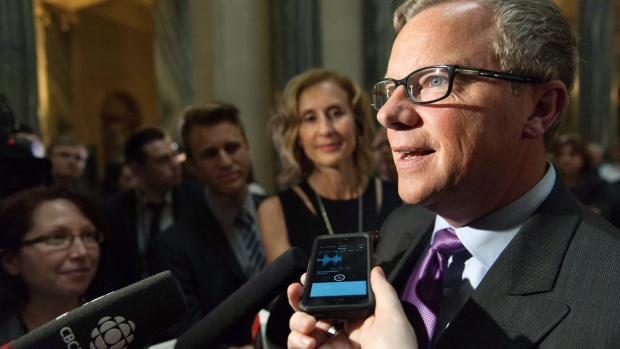Oct 7, 2016
Saskatchewan's Brad Wall exploring all options on 'dangerous' carbon tax plan
, BNN Bloomberg

Saskatchewan Premier Brad Wall is vowing to explore all options to blunt the economic impact of Ottawa’s proposed carbon tax, which he says will erode Canada’s international competitiveness.
Prime Minister Justin Trudeau announced earlier this week that the government is planning a $10-per-tonne tax starting in 2018 and increasing to $50 per tonne by 2022.
The federal government said carbon pricing will be imposed on provinces that don't match the tax or implement a cap-and-trade system on emissions.
In an interview on BNN, Wall said the federal government announced the new legislation without fully considering its impact.
“I don’t know what the plan is. I don’t think there is one beyond, ‘We’re going to have a price, and if you don’t do it, we will,’” he said. “The ‘how’ of [the carbon plan] is very unclear, so we’ll look at the legal options we have.”
Wall said he fears the new tax will adversely impact business decisions in the Bakken oil formation, which straddles Saskatchewan’s border with North Dakota.
“If in five years we have a $50 carbon tax on our energy sector, how many rigs will be north of the border and how many will be south?” Wall said.
Wall said offsetting the impact of the carbon tax with personal income tax reductions won’t be of much help if his constituents are put out of work by the new legislation.
“The fellow that’s working in southeast Saskatchewan… [who] loses their job because now we have a $50 carbon tax that our competitors don’t have really isn’t worried about an income tax, I’m afraid,” he said. “They’re worried about their jobs.”
“This is not well thought out: it’s dangerous for that reason and we’re going to be making that case over the coming weeks.”



